Environmental, Social, and Governance (ESG) ratings are increasingly scrutinized in today’s corporate landscape, leaving many companies searching for ways to improve their eco-friendly practices. ITAD (IT Asset Disposition) is one area where a company can make decisions that significantly impact its ESG score. However, companies need to consider data security in addition to ESG-boosting practices when disposing of end-of-life electronics.
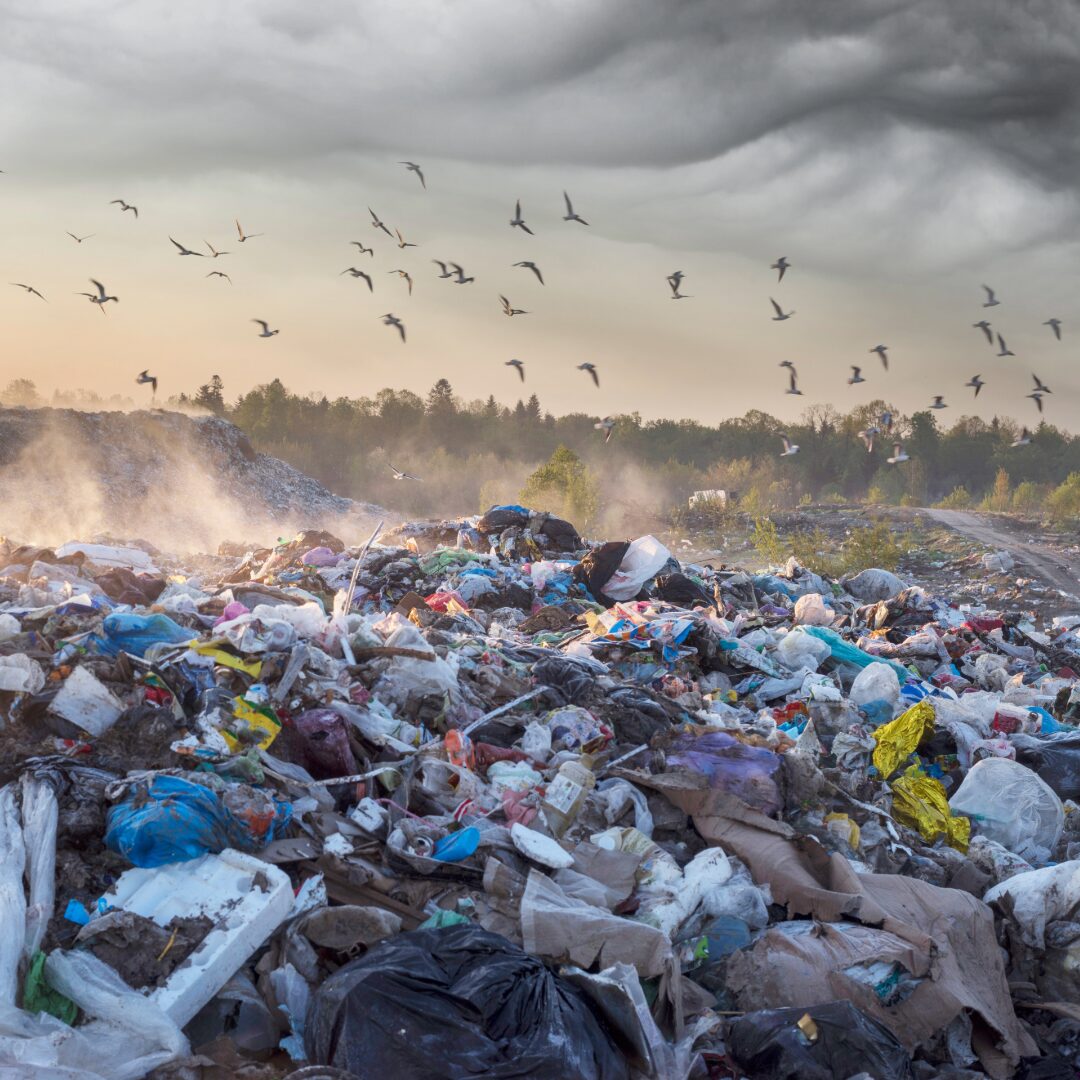 Every year, companies dispose of countless tons of electronic waste (also known as e-waste) often with little consideration for environmental consequences. In fact, according to the World Economic Forum, “The United States generates about 46 pounds of e-waste per capita annually, according to the United Nations 2020 e-waste monitoring report. Globally, 53.6 million metric tons of e-waste are produced every year worldwide, the analysis estimates. Maybe unsurprisingly, but still alarmingly, only about 17% of this waste is properly collected, documented, and recycled across the globe each year. Much of the remaining 83% of e-waste sits idle in homes and businesses or is disposed of improperly, according to the analysis.*1
Every year, companies dispose of countless tons of electronic waste (also known as e-waste) often with little consideration for environmental consequences. In fact, according to the World Economic Forum, “The United States generates about 46 pounds of e-waste per capita annually, according to the United Nations 2020 e-waste monitoring report. Globally, 53.6 million metric tons of e-waste are produced every year worldwide, the analysis estimates. Maybe unsurprisingly, but still alarmingly, only about 17% of this waste is properly collected, documented, and recycled across the globe each year. Much of the remaining 83% of e-waste sits idle in homes and businesses or is disposed of improperly, according to the analysis.*1
E-waste often contains hazardous substances like cadmium, lead, arsenic, and polyvinyl chlorides (PVC), which can lead to soil, water, and air contamination with far-reaching ecological consequences.
The Importance of R2v3 Certification
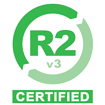 The best way to increase your ESG score when you are ready to dispose of end-of-life equipment is to make sure that you are working with an R2v3-certified company that understands the circular economy of technology. This type of company can make sure that every component of an electronic device is reused or recycled to maximize the value of the waste or to make sure that it is disposed of in a way that causes minimal harm to the environment.
The best way to increase your ESG score when you are ready to dispose of end-of-life equipment is to make sure that you are working with an R2v3-certified company that understands the circular economy of technology. This type of company can make sure that every component of an electronic device is reused or recycled to maximize the value of the waste or to make sure that it is disposed of in a way that causes minimal harm to the environment.
Support a Circular Economy
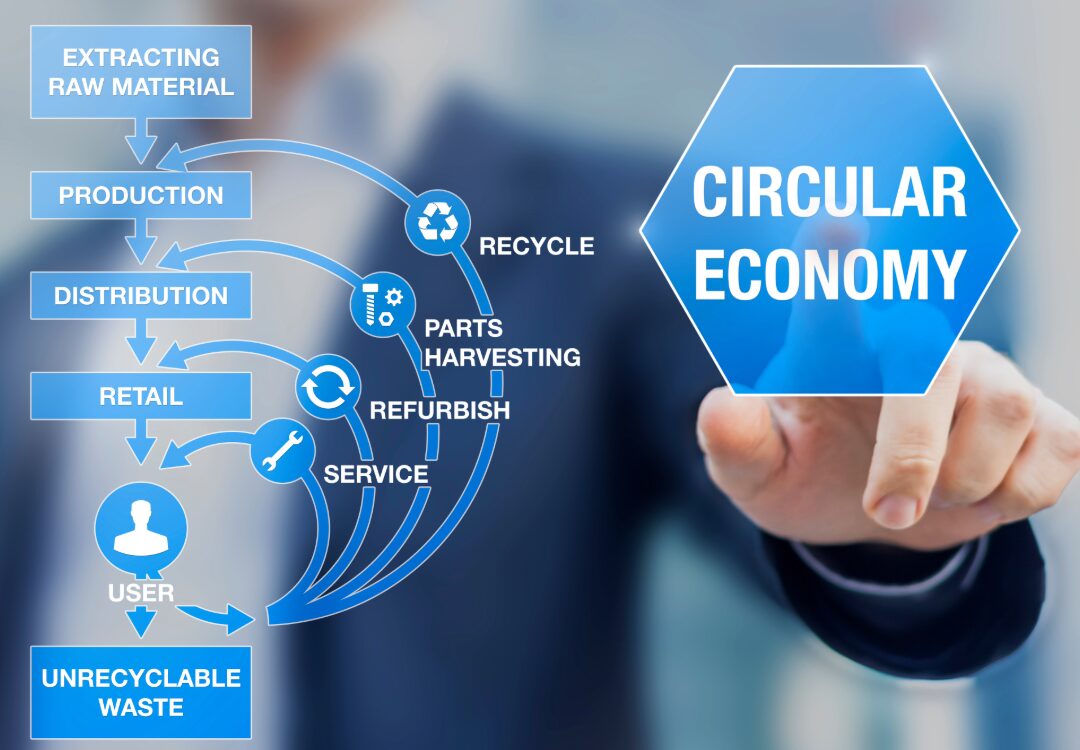
Working with a company committed to re-using all possible components of your retired electronics allows companies to develop a more sustainable and efficient economic model regarding the lifecycle of their electronic devices, resulting in improved ESG ratings.
Once decommissioned, Securis processes each component using a procedure that determines if a component has any residual value. If so, that value is shared with our clients in our Value Recovery Program; if not, each component is recycled in the most environmentally friendly way possible. We even require our downstream vendors to sign an Agreement for the Responsible Disposal of Sensitive Materials.
Prioritize Data Security While Improving ESG Ratings
While increasing ESG ratings is an admirable goal for any company, prioritizing data security is paramount when disposing of electronic equipment. This is because devices such as servers, laptops, and hard drives often contain sensitive information.
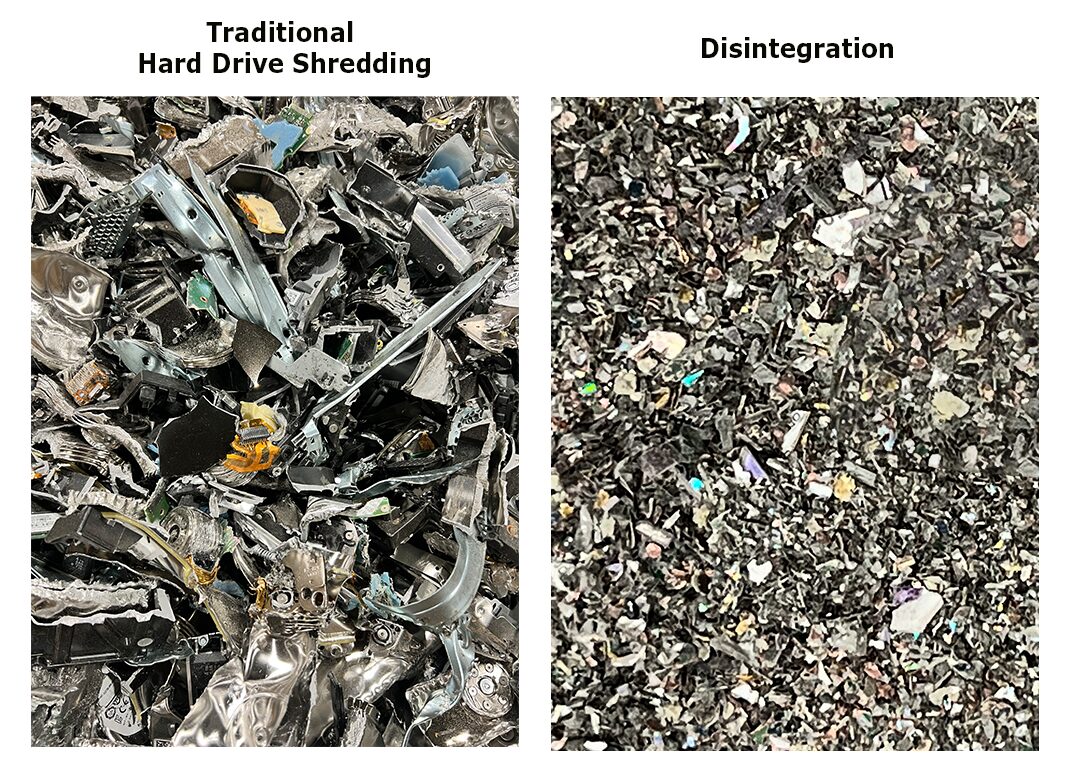 Partnering with a certified IT asset disposition (ITAD) specialist like Securis can ensure that data is securely destroyed to NSA standards before equipment is decommissioned.
Partnering with a certified IT asset disposition (ITAD) specialist like Securis can ensure that data is securely destroyed to NSA standards before equipment is decommissioned.
In addition to knowing that you are working with a responsible partner in decommissioning and recycling your assets, you need proof that shows exactly what your company decommissioned and recycled.
Working with a company that provides detailed inventory lists and a certified Certificate of Destruction can provide physical proof that your company is a responsible steward of the environment, making the right choices to protect the planet.
The inventory lists do not yet have ESG ratings, but they will detail all re-used or responsibly recycled assets. By keeping those end-of-life electronics out of landfills, you contribute to a circular economy of technology and increase that all-important ESG score.
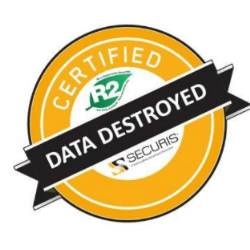 Securis Makes the Following Environmental Commitments:
Securis Makes the Following Environmental Commitments:
- Securis will not export electronics to developing countries and continents like China, India, and Africa to comply with the Basel Action Network (BAN).
- Securis will commit to doing all it can to recycle 100% of everything it receives.
- Securis will continually look for ways to improve e-waste recycling efficiency.
- Securis will exceed U.S. federal recycling mandates to comply with the widely adopted international standard.
- All downstream processors receiving shredded material from Securis must complete an Agreement for Responsible Disposal of Sensitive Materials.
- Currently, all magnetic media is incinerated using the cleanest methods available. Smelting documentation can be provided upon request.
- All metal-based material is sent to a domestic-based refinery for refinement based on its content.
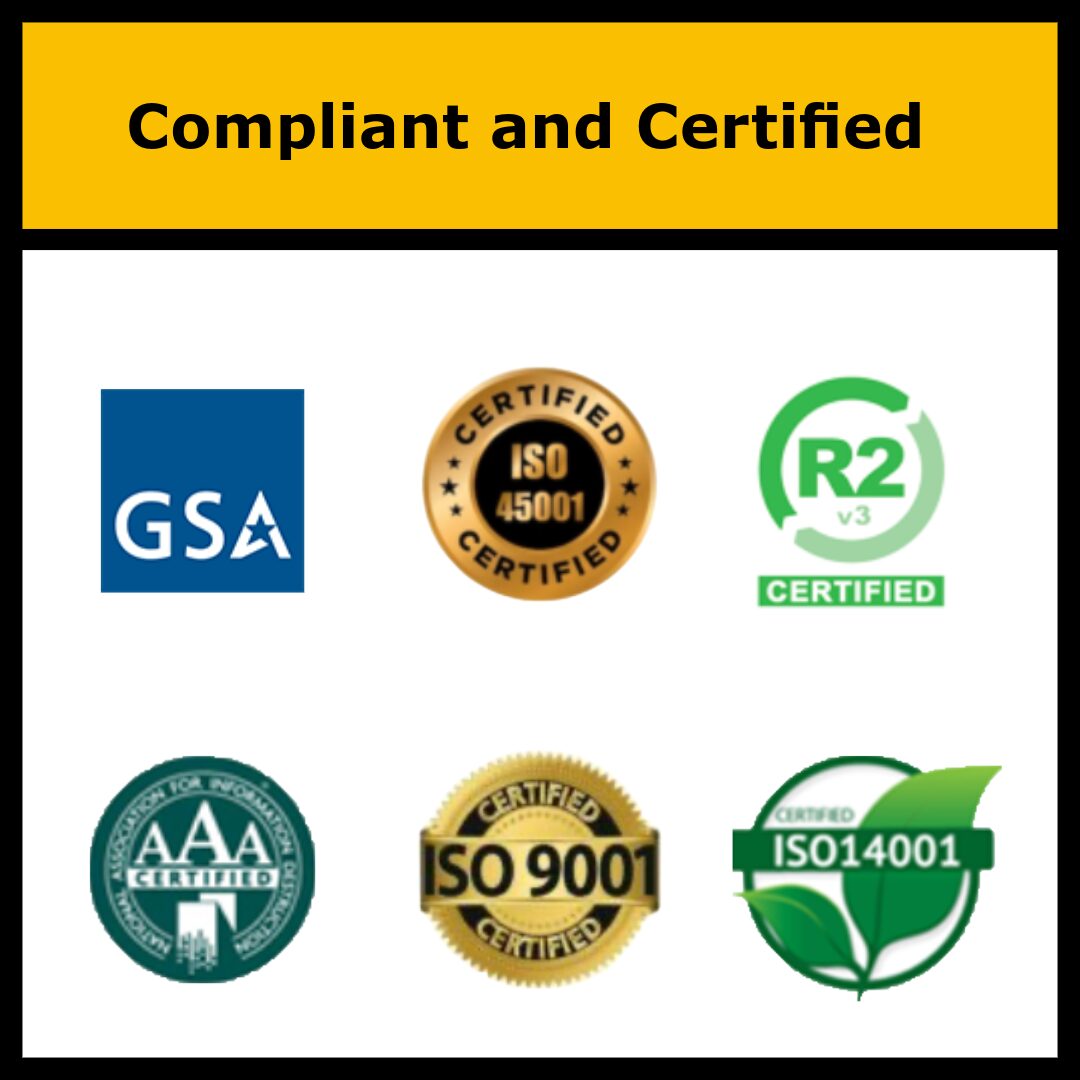 Build a Sustainable Future & Boost Your ESG Score
Build a Sustainable Future & Boost Your ESG Score
By embracing compliant, certified, and responsible IT Asset decommissioning and recycling vendors like Securis and adopting responsible e-waste management practices, companies can assure their data security and improve their ESG ratings while contributing to a sustainable future for generations.
Contact Securis today for more information.
1) https://www.weforum.org/agenda/2023/03/the-enormous-opportunity-of-e-waste-recycling/#:~:text= Globally%2C%2053.6%20million%20metric%20tons,across%20the%20globe%20each%20year.
